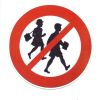10 History Books That Separate Experts from Amateurs
Recommended by Peter Frankopan, Jenna Wortham, and Ida Bae Wells, these History books offer profound insights and expert perspectives.






What if the history you thought you knew was just a part of the story? History isn’t a dry list of dates; it’s a dynamic narrative packed with human struggles, power plays, and cultural revolutions that shape our present. Today, understanding history means questioning traditional tales and embracing new perspectives that challenge old assumptions. This is especially urgent as global events demand deeper context and insight.
Leading historians and commentators like Peter Frankopan, professor at Oxford, and Jenna Wortham, New York Times Magazine writer, have found fresh revelations in books like The Greeks and The 1619 Project. Frankopan’s research into Byzantine and Greek history reshaped his views on cultural influence, while Wortham’s engagement with racial history deepened her understanding of America’s complex past. These experts discovered that history is often messier and more interconnected than textbooks suggest.
While these expert-curated books provide proven frameworks for understanding history’s many layers, you might find value in creating a personalized History book tailored to your interests, profession, or prior knowledge. Explore how you can build your own custom History book to deepen your journey beyond these foundational works.
Recommended by Shahid Buttar For Congress
Advocate and organizer, CA-12 congressional candidate
“@bourgeoisalien @scotty2971 Zinn’s “A People’s History” is an illuminating tour de force, an immense contribution to both history and the movement, and by far our #1 most recommended book. Enjoy—and share—it!” (from X)
by Howard Zinn··You?
by Howard Zinn··You?
When Howard Zinn first discovered the power of history told from the perspective of ordinary people, he reshaped how American history could be understood. In this book, you encounter a narrative that centers on the struggles of women, workers, African-Americans, Native Americans, and immigrants rather than political elites, revealing grassroots battles for labor rights, racial equality, and suffrage. You’ll gain insight into events often overlooked in traditional textbooks, such as the fight for the eight-hour workday and child labor laws, told through compelling stories and analysis. This approach challenges you to reconsider accepted narratives and deepens your understanding of America's complex social fabric. It's a book that suits anyone wanting a more inclusive and critical view of U.S. history.
Recommended by Jenna Wortham
NYT Magazine writer, culture commentator
“congrats to @nhannahjones & @OneWorldLit for the most Scorpio-ass book — transformative, powerful, extremely potent and one that will strike back if needed” (from X)
by Nikole Hannah-Jones, The New York Times Magazine, Caitlin Roper, Ilena Silverman, Jake Silverstein··You?
by Nikole Hannah-Jones, The New York Times Magazine, Caitlin Roper, Ilena Silverman, Jake Silverstein··You?
When Nikole Hannah-Jones, a Pulitzer Prize-winning journalist known for her incisive coverage of racial injustice, expanded the original 1619 Project into this extensive volume, she shifted the lens on American history to center African American experiences and the legacy of slavery. You’ll encounter eighteen essays and dozens of poems and stories that explore how the arrival of enslaved Africans in 1619 shaped every facet of U.S. society, from capitalism and democracy to culture and identity. For anyone eager to deepen their understanding of America's racial past and present, this book offers a nuanced, layered exploration without shying away from difficult truths, such as the ongoing impact of systemic racism. Its detailed scholarship and literary voices make it a rich resource for educators, activists, and history enthusiasts alike.
by TailoredRead AI·
This personalized book on ancient civilizations provides a tailored framework that explores the rise, influence, and interconnectedness of early empires across the globe. It examines key methodologies in historical analysis, tracing cultural, political, and technological legacies through comparative frameworks adapted to your specific interests and background. By focusing on tailored approaches to understanding ancient power dynamics, societal structures, and cross-cultural exchanges, the content cuts through irrelevant generalizations and fits your unique context. This nuanced examination helps uncover how ancient civilizations shaped the modern world, offering insights into their global footprints through a carefully curated, personalized lens.
Recommended by Peter Frankopan
Professor of Global History, Oxford University
“A monumental, sweeping history of the Greeks covering more than three thousand years right up to the present day. Authoritative, compelling, and beautifully written. A wonderful book.”
by Roderick Beaton··You?
by Roderick Beaton··You?
Unlike most history books that focus narrowly on classical Greece or modern nationhood, Roderick Beaton expands the narrative to cover more than three millennia of Greek civilization, from the Bronze Age Mycenaeans to today's global diaspora. You gain a nuanced understanding of how Greek culture, politics, and influence evolved across continents and epochs, illustrated through detailed explorations of key chapters like Alexander the Great’s conquests and Byzantine Christianity’s spread. This book suits anyone eager to grasp how Greek identity and contributions have shaped world history beyond the usual confines. It’s a measured, richly documented journey rather than a glorified national epic, making it especially rewarding if you want depth over mythology.
Recommended by Balaji S. Srinivasan
CEO and Co-Founder of 21, Board Partner at Andreessen Horowitz
“@ScottFlear In the Asian theater, World War 2 arguably began in 1937 with the Japanese attack on China. One of the interesting things about McMeekin's book is that it unifies the European and Asian theaters from the Soviet perspective.” (from X)
by Sean McMeekin··You?
by Sean McMeekin··You?
When Sean McMeekin first examined World War II through newly accessible Soviet, European, and US archives, he uncovered a perspective that challenges familiar narratives. This book reveals how Stalin, rather than Hitler, was the driving force behind the war's scope and outcome, showing readers the geopolitical strategies, alliances, and material dependencies that shaped the conflict. You’ll gain insight into the interconnected Asian and European theaters and how American and British aid empowered the Soviet war machine. It's particularly suited for those interested in understanding the war's broader global dynamics beyond the usual Eurocentric focus.
Recommended by Trevor Ncube
Media executive and keynote speaker
“Howard French’s book is a must read for all who want to understand our proud, most times painful, role in the making of the modern world. Beautifully written from primary sources, with flavor of Howard’s lived experience, the book breaks plenty new ground.” (from X)
by Howard W. French··You?
What if everything you knew about modern history was wrong? Howard W. French argues that Africa and Africans lie at the heart of the story often told as Europe's rise. Drawing from his decades of journalism and deep historical research, French reconstructs a narrative where Africa’s economic power and cultural influence shaped the Age of Discovery, democracy, and Enlightenment ideals. You’ll encounter vivid accounts of medieval African emperors, resilient Kongo rulers, and freed slaves who changed American history, all challenging the conventional Eurocentric view. This book suits anyone eager to rethink global history through a more inclusive, nuanced lens, though it demands engagement with complex and sometimes uncomfortable truths.
by TailoredRead AI·
by TailoredRead AI·
This personalized framework examines pivotal battles and military strategies across diverse historical eras, offering a tailored approach that fits your specific interests and context. The book provides in-depth analysis of strategic decision-making, battlefield tactics, and campaign outcomes, adjusted to your preferred regions, time periods, and military doctrines. It explores the evolution of warfare methodologies from ancient conflicts to modern engagements, emphasizing how key campaigns shaped political and cultural landscapes. By cutting through generic overviews, it delivers a focused, adaptive exploration of conflict dynamics, helping you understand how strategy, leadership, and technology intersect in military history.
Recommended by Peter Frankopan
Professor of Global History, Oxford University
“A great achievement, pulling together many strands with aplomb.”
by Dan Jones··You?
by Dan Jones··You?
When Dan Jones first realized how the medieval world was shaped by forces still familiar today—like climate change and pandemics—he crafted a narrative that extends beyond simple chronology. You gain an understanding of how Europe evolved from Rome’s fall through the rise of nations, law, and culture, with vivid portraits of figures like Eleanor of Aquitaine and Attila the Hun. The book’s chapters systematically connect medieval events to modern systems, making the past relevant rather than distant. If you want to grasp how foundational shifts in governance, religion, and society during the Middle Ages underpin today’s world, this book will serve you well; however, if you seek a narrowly focused military or economic history, this broad panorama may feel too sprawling.
Recommended by Publisher's Weekly
“Chronicles the imperial struggle for power in Central Asia between Victorian England and Czarist Russia.”
by Peter Hopkirk··You?
by Peter Hopkirk··You?
What started as Peter Hopkirk's deep dive into nineteenth-century geopolitical contests reshaped how you understand the intricate power plays in Central Asia. Drawing from his extensive reporting career at The Times of London, Hopkirk unpacks the tensions between Victorian England and Czarist Russia, revealing the strategies and missteps that defined their rivalry. You gain detailed insight into diplomatic maneuvers, espionage, and military expeditions that shaped the region's fate, especially through chapters that trace key figures and their covert operations. This book suits anyone fascinated by imperial history or geopolitical strategy, offering a vivid window into the forces shaping Central Asia beyond mere dates and battles.
Recommended by Ben Dreyfuss
Editorial Director at Mother Jones
“I shall confess that all of my knowledge about the July crisis comes from either the first chapter of Barbra Tuchman’s “Guns of August” or the BBC docudrama “37 Days” starring the actor who played Emperor Palpatine. But that’s a great book and the miniseries is really good.” (from X)
by Barbara W. Tuchman··You?
by Barbara W. Tuchman··You?
When Barbara W. Tuchman first realized how the tangled web of decisions, personalities, and politics led to the outbreak of World War I, she crafted a narrative that focuses on the critical month of August 1914. You gain a detailed understanding of how historical events unfolded through vivid portraits of key figures like kings, kaisers, and generals, along with insight into the abrupt shift from 19th-century pomp to 20th-century warfare. Chapters dissecting the July Crisis reveal how miscalculations and diplomacy failures ignited a global conflict. This book is ideal if you want a gripping look at the origins of WWI beyond dry dates and facts, especially if you're interested in military history and political dynamics.
Recommended by Keith Ellison
Minnesota Attorney General fighting for dignity
“Just listened to the audio version of one of my favorite books, The Color of Law: A Forgotten History of How Our Government Segregated America by Richard Rothstein. Highly recommend.” (from X)
by Richard Rothstein··You?
by Richard Rothstein··You?
The Color of Law challenged the long-held belief that racial segregation in American cities happened naturally or by individual choices. Richard Rothstein, with his deep expertise in housing policy, lays out how explicit government laws and policies systematically enforced segregation, shaping metropolitan America. You gain a detailed understanding of how zoning laws, public housing policies, and federal subsidies combined to create lasting racial divides — insights grounded in chapters that trace these policies from the 1920s through post–World War II suburbanization. If you're looking to grasp the legal and governmental role in racial inequality, this book illuminates those mechanisms clearly and rigorously.
Recommended by The New York Times
“...a mini museum between the covers of a book.”
Unlike most history books that rely heavily on text, this visual history from DK offers an immersive experience by combining detailed maps, vivid photographic galleries, and firsthand soldier accounts to convey the complex narrative of World War I. You get a chronological journey from the assassination of Archduke Franz Ferdinand to the Treaty of Versailles, with chapters dedicated to major battles like the Somme and Verdun, alongside profiles of key figures such as David Lloyd George. The book’s rich visuals and eyewitness testimonies help you grasp the war’s evolving technologies and human impact, making it particularly useful if you prefer learning through powerful imagery and personal stories. It’s ideal for history enthusiasts seeking a well-rounded understanding rather than an academic-heavy tome.
Get Your Personal History Strategy in 10 Minutes ✨
Stop following generic history guides. Get targeted insights that fit your interests and goals without reading dozens of books.
Join 15,000+ History enthusiasts who've personalized their approach
Conclusion
This collection of ten History books reveals several key themes: the importance of diverse perspectives, the interconnectedness of global events, and the lasting impact of political and social decisions. Whether it’s exploring the sweeping influence of Greek civilization or unpacking the forces behind racial segregation in America, these books offer you multiple lenses to view history’s complexity.
If you’re navigating the challenge of understanding systemic inequality, The 1619 Project and The Color of Law provide profound insights. For those eager to grasp the origins of global conflicts, Stalin’s War and The Guns of August offer detailed analysis. Readers looking for a broader cultural panorama will find Powers and Thrones and Born in Blackness especially rewarding.
Once you’ve absorbed the expert insights here, create a personalized History book to connect these general principles with your unique goals and background. Tailored reading can help you bridge gaps and make history truly relevant to your perspective and needs.
Frequently Asked Questions
I'm overwhelmed by choice – which book should I start with?
Start with a book that matches your interests. For a broad social view, try A People’s History of the United States. If you want global perspectives, The Greeks offers a sweeping narrative. Choosing a starting point that excites you makes the journey more rewarding.
Are these books too advanced for someone new to History?
Not at all. Many, like The Guns of August and Powers and Thrones, are written with engaging storytelling that welcomes newcomers. They provide rich context without assuming deep prior knowledge.
What's the best order to read these books?
There’s no single order. You might start with broader histories like Born in Blackness or The Greeks and then move to more focused works like The Great Game or Stalin’s War to deepen specific areas of interest.
Should I start with the newest book or a classic?
Both approaches work. Newer books like The 1619 Project offer fresh perspectives on history, while classics such as The Guns of August provide foundational understanding. Mixing both enriches your grasp.
Do I really need to read all of these, or can I just pick one?
You can absolutely pick one that resonates most with your interests. Each book stands strong alone, but reading multiple offers layered insights that deepen your understanding of history’s complexity.
Can I get tailored History insights without reading all these books?
Yes, you can. While these expert books offer valuable perspectives, creating a personalized History book lets you focus directly on your interests and goals. Discover tailored History books here.
📚 Love this book list?
Help fellow book lovers discover great books, share this curated list with others!
Related Articles You May Like
Explore more curated book recommendations









